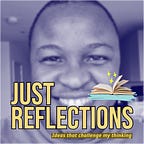Do you feel you don’t have enough time in the day to do everything you want to do? Have you looked at all the productivity junkies out there and wondered how they do everything they do?
While I don’t consider myself a productivity junkie, I do many things. I’m married and I’m a full-time senior software engineer, which on its own is a very demanding and sometimes stressful job. I’m also a co-founder and the sole developer of dealbase.africa and I do freelance work. Apart from this, I read a lot of books and blogs. I write this newsletter every fortnight and I still have time to go out skating, play video games, meet up with friends, paint, be active on social media and do other less regular things. In this article, I’ll talk about how I manage my time and hopefully, you’ll learn some things to help you do the same.
For me, this is about recognising the things that are most important and giving my best attention to those. However, all the productivity hacks in the world won’t help if you don’t know why you’re doing what you’re doing. Without this, you’ll just be filling up your calendar, ticking off to-do lists, and grinding tirelessly with no direction. A strong why will help you stay focused on the things that are important to you and to define clearly the things that will bring your fulfilment and a sense of purpose. That way, you won’t get distracted by shiny objects along the way.
Three simple steps.
My approach for managing time follows these three steps:
Focus completely for 2 - 4 hours every day.
Do the one thing.
Declutter your schedule.
Focus completely for 2 - 4 hours every day.
The first step is to realise that the big tasks that take focus over long periods of time cannot be done effectively in one go. They should be done as a slow burn, not a heavy lift. If you think about big tasks as a heavy lift, you’ll continuously feel overwhelmed, pull all-nighters before deadlines and eventually burn yourself out. It’s not sustainable and you’ll always feel mentally and physically drained. Do a little every day and you’ll be amazed how far it will get you. I’m sure many of us have read about “The power of tiny gains” by James Clear. One per cent better every day leads to 37 times better at the end of the year.
The things that stand out can’t all be done in one go. You have to chip away at them in small pieces every day.
However, the key here is not just about making tiny gains to build up to a big whole, that’s important, but even more important is reserving time to work with complete focus with no distractions every day.
I’m a self-taught software engineer. I had to learn and understand a lot of big and complex things to gain the skills I need, and because tech changes so rapidly, I have to keep up and learn new complex things every day. This would have been really difficult to do if I wanted to do the work in big chunks at the end of the week. Or if I continuously context switch. So I figured out my circadian rhythm and understood that my most productive times are at night. So to this day, every night, when it’s now peaceful and quiet, I put my phone away out of reach, turn off notifications, and work with full focus for two to four hours. During this time, I can take breaks, stand to stretch or get a snack, etc. but I don’t allow myself to do anything other than the scheduled task. During my breaks, I don’t check Twitter or Instagram because that forces a context switch and before you know it you’ve been scrolling for 30 minutes. I want my mind to remain focused and continue working on the task in the background whilst I take a break. Context switches will kill that focus, and I’ll need time after every context switch to bring my mind back to the main thing.
I define a context switch as anything that has the potential to either draw my attention away from the task at hand or to affect my emotions. I add the potential to affect emotions here because many often ignored distractions fall under this category. Listening to music is an example. Different music affects me in different ways, so listening to a playlist takes me through a roller coaster of different thoughts and feelings, regardless of what music it is. It’s difficult to tune out the music and if I’ll be struggling to tune it out, why have it in the first place? Even if I succeed in pushing it to the background, it’s using up some background mental resources that could be processing the thing I’m working on.
Given that you’ll be taking out these highly stimulating things, it’s important to understand that you will probably get bored during these focused deep work sessions. The allure to reach for your phone or procrastinate with pseudo-work like email will continuously gnaw at you. You’ll feel like doing other things. Don’t listen to those urges; stay in the zone and focus for the allotted time. If you do this enough times, it will get easier. You’ll still get bored every now and then but you’ll master the ability to ignore the boredom and get the thing done.
Do the one thing.
You need to be okay with the fact that you can’t do everything. So you need to prioritise. Every day, pick the one thing that you need to do, the most important thing, and do it really well. If that’s the only thing you accomplished at the end of the day, then it’s a successful day.
But what if my work is different and I have ten things to do every day? Well, you probably have more than ten things to do, you have a hundred things to do. We all do. But there’s no way to do that many things well in one day, so if you can put the ninety things on hold to do the ten, you can also put nine aside to do the one thing very well. You need to be okay with the fact that you can’t do everything. If you have ten things that are all your highest priority for the day, you’ll do all those ten things badly. So break them up and give each thing its own day. Otherwise, at the end of the week, you’ll still be working on the same 10 things you were working on at the start. And none of them will be done in a way that stands out.
So choose the one thing, give it your full focus with no distractions and every day you’ll have at least one accomplishment done really well that you’re really proud of.
Declutter your schedule.
Besides your one thing, you likely have other things to do in your day that aren’t really your things but still need to be done. Things like meetings and other obligations that you can’t get out of. That’s fine, we all have those. They are not part of your one thing. The problem is that if you keep accepting every request for your time, your schedule will eventually get very cluttered. You may feel like you have to accept all these meetings. However, most times, you don’t, and they can be fine without you. Unless you’re a key person, most long meetings will last an hour but only require you for five minutes. The rest of the time you’re sitting there just listening to things that aren’t relevant to you.
So here’s my solution; insist on an agenda being sent ahead of every request for you your time. Excuse yourself if it doesn't need you in particular or can do without you. If there’s someone else who’d be more useful, recommend that they take your place. If it’s something you can respond to without a meeting, write an email or a chat message and delete the event from your calendar. You’ll free up a lot of time and energy by avoiding the drudge of meetings.
Decluttering your schedule also means learning to say no to yourself more often. The things that are cluttering your schedule aren’t all coming from other people, many of them will be from you. A big time waster is the TV. My solution is to figure out the shows you like and want to watch and schedule them on your calendar. That way they’ll be subject to the same scrutiny we just spoke about. This will help you avoid mindlessly watching things just to kill time. When your scheduled show is over, turn off the TV and move on. If you find yourself distracted during a show, maybe it’s boring to you now, take it out of your schedule. Don’t quit entertainment cold turkey. It won’t work and you’ll sap away your joy. You can still watch movies and TV shows and play games. Just don’t do it mindlessly; plan and schedule it. And audit it regularly. Saying no to yourself is not because you don’t want these things, it’s because every yes to them is also a no to the things that really matter.
When you’ve decluttered your schedule and you now have more free time, don’t think that you now have more free time so you can take on more things. That’s the behaviour that got you oversubscribed.
Bad habits.
This article would be disingenuous if I didn’t mention a bad habit I have that gives me more time (in exchange for more important things like my health). I have terrible sleeping habits. Well, it’s a little better now because I’ve been working on it.
I sleep between five to six hours per night, seven hours if I really put in the effort. Eight to ten-hour nights are very rare and even when I try my body is so conditioned that I’ll wake up after seven hours. I’m also not a ‘lie in bed trying to sleep’ kind of person—I don’t struggle to fall asleep, when I get into bed I’m usually out in less than five minutes. At the time that I’m supposed to be sleeping, I’m usually crossing off more things from my to-do list. And since this is usually in the early morning hours when my brain is most productive, that two to four hours of focused work usually becomes four to six hours.
This is not something I recommend to anyone and as I said, I’m working on sleeping more. I only included it here because this article is called “How I have time for everything” and this is a part of it.
Energy management.
As a final note. The following is an excerpt from an article by Cate Huston titled “Energy Management for Newer Managers”. This is relevant because often when we want to differentiate ourselves and get more done, we think it’s through strong time management. As described above, we work on our schedule to really prioritize the deep work. However, we usually fail to consider energy management and yet it has the potential to derail all our good scheduling. This is what Cate Huston is talking about:
One thing that many of us experience as we get older and we have many things to do is overwhelm. Superficially, it’s understandable that people become overwhelmed. They get a lot of new responsibilities and need to process that responsibility; it can take some time to filter through it all and figure out how to manage it. Time management alone is not enough to help with this feeling of being overwhelmed. The other important but often ignored thing is energy management. This requires a different approach.
Sometimes the most challenging thing to do on a given day is having a hard conversation. It might even be a short, hard conversation. Being proactive instead of reactive about these is largely an emotional regulation issue. Making active decisions here requires a level of emotional calm and mental clarity that we lose when we are stressed and overwhelmed. And mishandling these can wipe out all our energy and incapacitate us to perform the rest of our tasks.
So, if you’re feeling overwhelmed, the first thing is to figure out whether you have a time management problem or an energy management problem.
What things do you add to your to-do list on Monday, but delay until Friday? Why do you put them off?
What things do you struggle to do at the end of the day even though you technically “have time”?
Looking at your task list for the last week, what was draining beyond the time spent on it?
Looking at your task list for the next week, what do you worry you won’t have time for? Why is that?
Looking at your task list for the next week, what are you dreading? Why?
Looking at your task list for next week, what are you looking forward to? Why?
What do you think is the most valuable thing you do? Why? How much time do you spend on it?
Audit your calendar / regular work and ask yourself for each thing: how valuable is this, how much time is spent on it, and whether it’s energy-giving, energy-taking, or neutral.
Once you’ve worked through some of these questions, you will probably know whether the problem is just the sheer volume of things or whether it is not the volume, but the emotional drain of certain activities.











